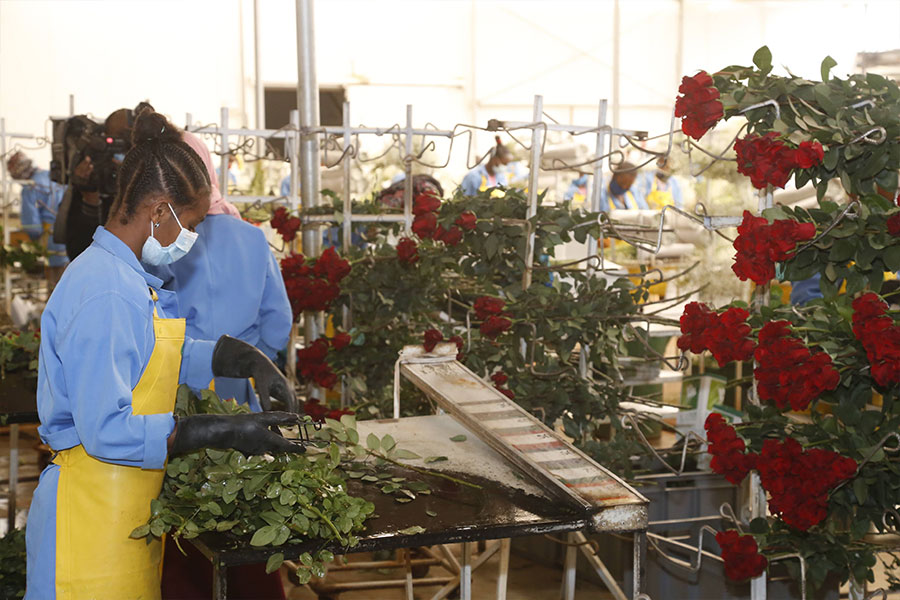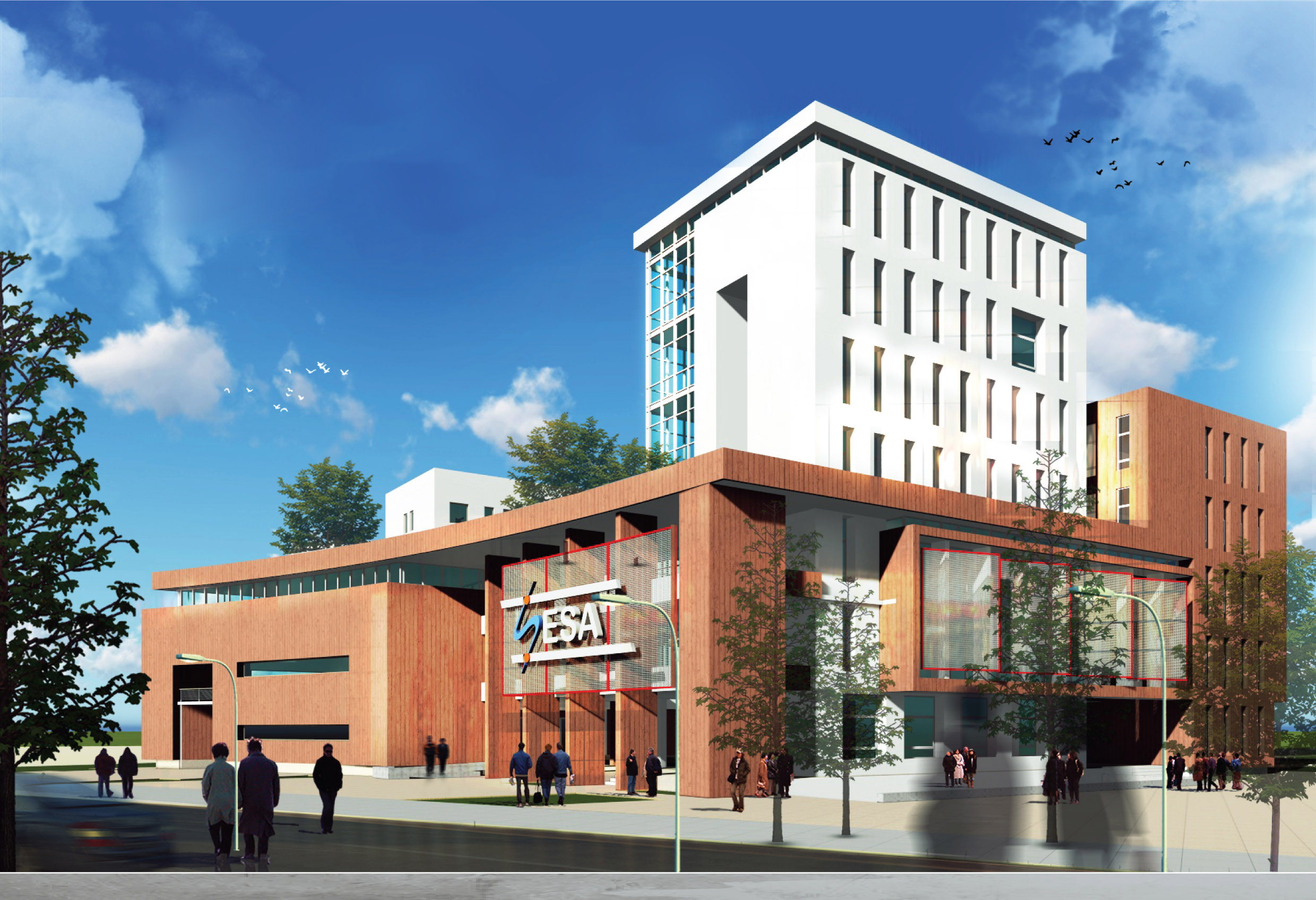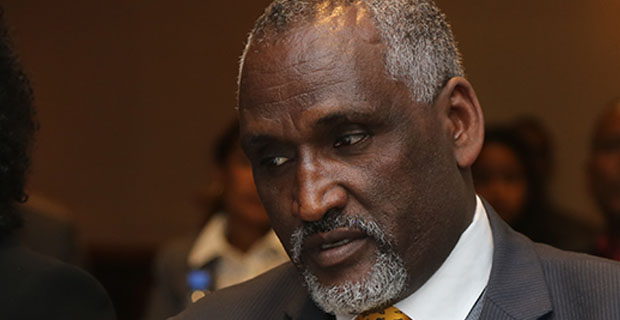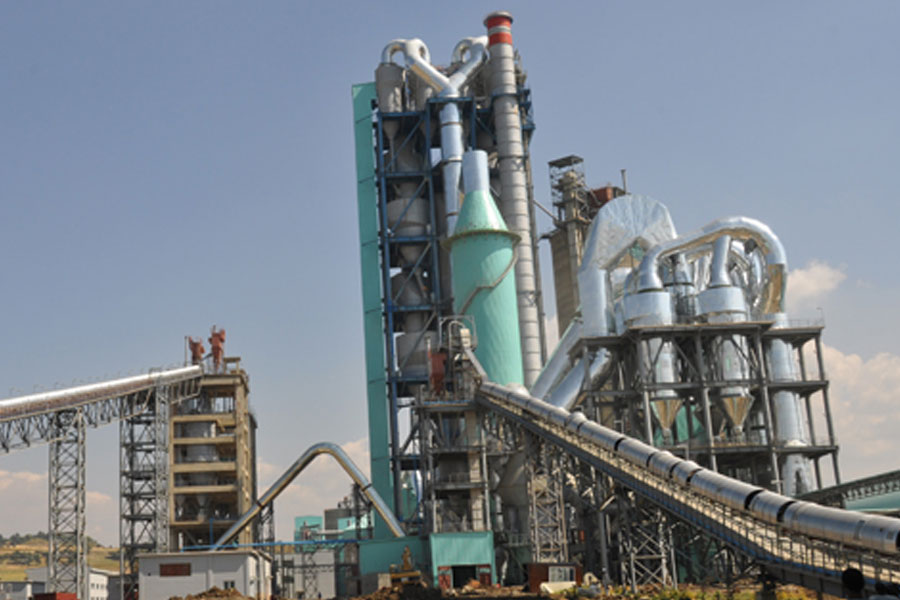
Radar | Jan 21,2023
Barely a week after the government set aside its cement market regulatory policy, cement prices have spiked up to as high as 900 Br a quintal, double the official price from two weeks ago.
The surge in the price of cement comes at a bad time as cement plants are preparing to undergo maintenance, a state of affairs that industry insiders fear would further disrupt the cement market. This is a major setback for the construction industry, which has been stagnant because of the soaring cost of inputs.
Officials at the Ministry of Trade & Industry decided to let the trading of cement be run by market forces, hoping the demand for the item would be low during the rainy season.
Prior to its latest measure, which became effective on July 14, 2021, the Ministry has been tightly regulating the market, even assigning its employees to each of the cement plants to regulate the distribution process, while repeatedly cracking down on retailers that were allegedly making unreasonable price adjustments.
The price spike goes against the consensus reached between the officials of the Ministry and factories, wholesalers, and retailers not to raise prices indiscriminately.
Factories, which have not raised their prices thus far, are blaming distributors and retailers for the spike, contending that the situation is beyond their control.
"The unhealthy market practices by distributors and retailers and the underground market they have created are responsible for the price upsurge," said Fitsum N. Demissie, CEO of East African Trading House and board member of the Ethiopian Cement Manufacturers Association on behalf of National Cement. The factory currently sells cement at 349 Br a quintal.
The government's decision seems to have backfired as not only have prices risen but it has also forced retailers to sit in empty warehouses. This is well observed by Mulugeta Desalegn, who works at one of the many cement retail stores in the Megenagna area.
After waiting a month for a supply of 400 quintals of cement from a broker, his employer sold out the entire stock for 720 Br a quintal in a single day last week. "Demand has not slowed much since the onset of the rainy season, contrary to the Ministry's predictions," he said.
Addis Midiksa, CEO of AMG Construction, which has been in the industry for a decade, sees the claims of lowered demand as ludicrous, citing that projects might slow down during the rainy season but they do not cease completely.
"We can't just stop a construction project, we have to finish in time," he said, adding that he recently paid 900 Br for a quintal of cement. The high prices and shortage might lead to project delays, according to Addis, and this will mean even more costs incurred.
Industry insiders also assert that brokers have been more directly involved in the market, hoarding products and supplying contractors directly themselves following the change in the government's policy.
Tewodros Shimeles, CEO of TABU Construction Plc, cites that he was unable to buy any cement from his regular retailer in the Qera neighbourhood last week as there was none left in stock.
"Some contractors get cement without having to come to the market, through deals with retailers," said Tewodros.
His company is still waiting for the remaining 400 quintals of a 600 quintal quota assigned from Mugher and Derba cement factories.
There are currently 13 cement factories operating in the country, producing some 8.4 million tonnes of cement annually, although demand is estimated to sit somewhere around 11.5 million tonnes.
Derba Cement, owned by Mohammed Ali Al-Amoudi and his family, has the largest capacity of 2.5 million tonnes, followed by Messebo Cement, which produces 200,000tn less. The latter had been closed for four months due to the military conflict in the Tigray Regional State, where it is located before it began partial production in late March this year. It closed its doors again two weeks ago due to the ongoing conflict in the region.
Samuel Halala, director-general of the Chemical & Construction Inputs Industry Development Institute, believes that increased production at cement factories will enable the government to achieve market equilibrium. However, he did not deny foreign currency shortages and a lack of spare parts are still curtailing the factories' production capacity, explaining that the shortfall creates a breeding ground for hoarding practices and price gouging.
All the cement factories are set to undergo maintenance during the rainy season between now and September, with Mugher already in the process, while Messebo was being maintained before it stopped operations after the Ethiopian National Defense Force left Tigray. The government has allotted 85 million dollars for the purchase of spare parts and other necessary materials for the factories and officials expect the renovations to improve production.
Samuel hopes that if the plants are fully maintained, their annual production will climb to 12 million tonnes, minimising the shortage in the market and stabilising prices.
On his part, Tewodros of TABU construction would like to see the government bring back its regulatory policies to control market prices and hoarding.
PUBLISHED ON
Jul 24,2021 [ VOL
22 , NO
1108]

Radar | Jan 21,2023

Radar | Nov 20,2021

News Analysis | Apr 09,2022

Fortune News | Nov 21,2018

Fortune News | Dec 29,2018

Commentaries | May 28,2022

Fortune News | Feb 27,2020

Radar | Mar 09,2019

Radar | Aug 07,2021

Fortune News | Aug 07,2021

Feb 24 , 2024 . By MUNIR SHEMSU
Abel Yeshitila, a real estate developer with a 12-year track record, finds himself unable to sell homes in his latest venture. Despite slash...

Feb 10 , 2024 . By MUNIR SHEMSU
In his last week's address to Parliament, Prime Minister Abiy Ahmed (PhD) painted a picture of an economy...

Jan 7 , 2024
In the realm of international finance and diplomacy, few cities hold the distinction that Addis Abeba doe...

Sep 30 , 2023 . By AKSAH ITALO
On a chilly morning outside Ke'Geberew Market, Yeshi Chane, a 35-year-old mother cradling her seven-month-old baby, stands amidst the throng...

Apr 13 , 2024
In the hushed corridors of the legislative house on Lorenzo Te'azaz Road (Arat Kilo)...

Apr 6 , 2024
In a rather unsettling turn of events, the state-owned Commercial Bank of Ethiopia (C...

Mar 30 , 2024
Ethiopian authorities find themselves at a crossroads in the shadow of a global econo...

Mar 23 , 2024
Addis Abeba has been experiencing rapid expansion over the past two decades. While se...